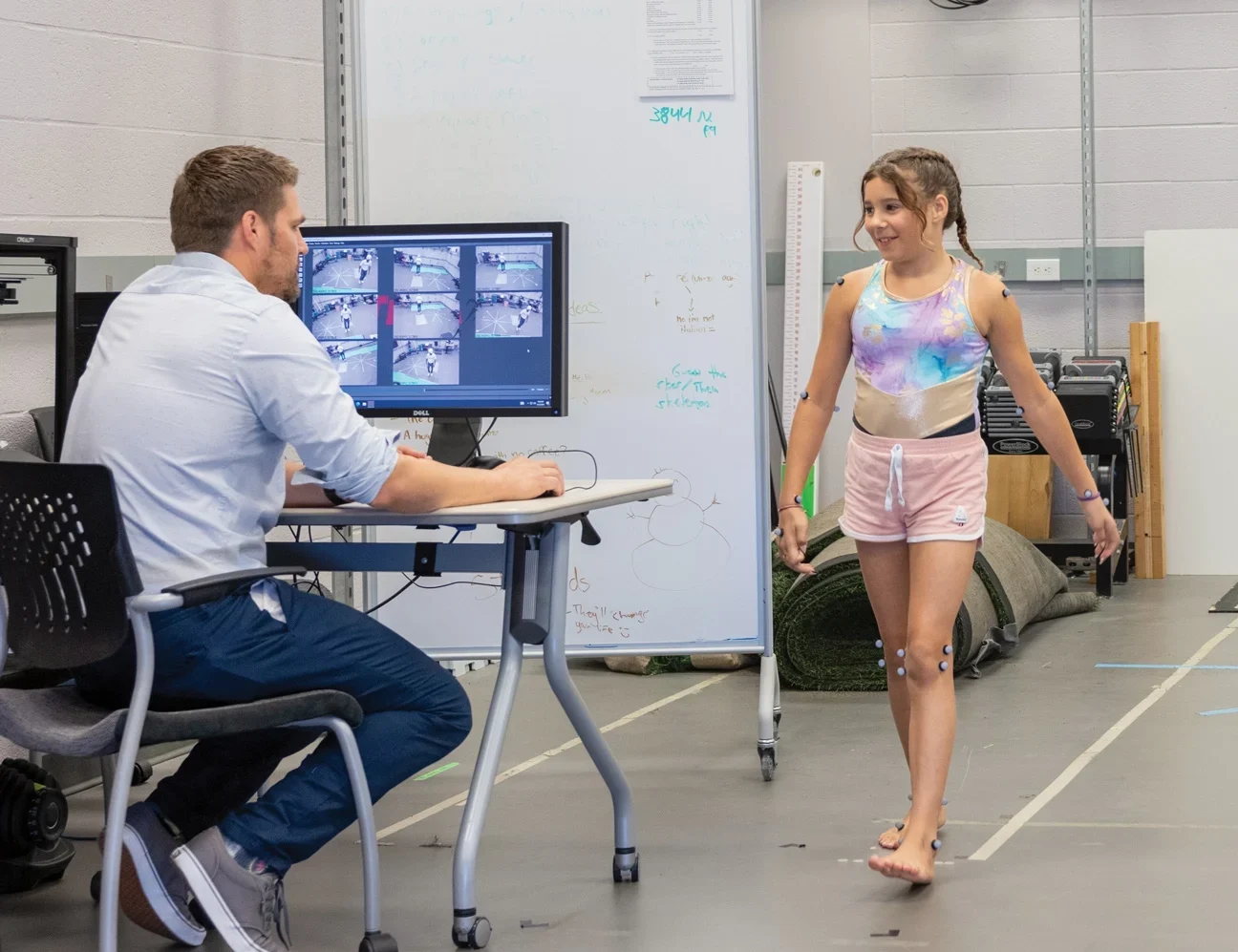As a young NBA fan, Timothy Burkhart used to wonder why some players were often sidelined with injury. Now, as an assistant professor at the Faculty of Kinesiology and Physical Education, he’s seeking answers through research.
“Is it some way they’re moving? Is there a vulnerability there?”
In his Biomechanics of Orthopaedic Sports Medicine Lab, Burkhart and his team of graduate students are trying to discover which parts of the body are most likely to fail on whom, and why.
They’ve been focusing on hips and knees – where athletic injuries most commonly occur – and, more recently, wrists. As part of their study, the researchers attach markers to the athletes (including young gymnasts, shown above), ask them to simulate moves they use frequently in their sport that put the most stress on these joints, and then use motion-capture technology to generate computer models that accurately estimate the forces acting on the joints.
Burkhart hopes his findings will help athletes avoid injury, and, for those who do get injured, lead to better surgical and non-surgical treatments, as well as improved rehab so they can return to playing as soon as possible. “We want to keep athletes safe and healthy,” he says. “And, when they’re done playing, to be active and pain-free.”






No Responses to “ Why Are Some Athletes More Prone to Injuries Than Others? ”
This sounds like an interesting and overdue study. Will your results, and/or any interesting findings be published? (I'm a BPHE 1970 grad.)
Prof. Timothy Burkhart responds:
Yes, we are planning on finishing up the data collection in the new year and we will be publishing our results.